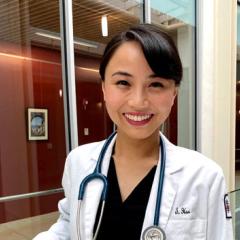The climate crisis is making us sick. Doctors need better training to treat it.
Editor's note: This is an excerpt from an original article in the Grist Fix Solutions Lab by Sarah Hsu and Gaurab Basu. Read the full article here.
Sarah Hsu is a fourth-year medical student at Brown University and a graduate student in primary care population medicine. She is a founding leader and vice chair of Medical Students for a Sustainable Future and co-host of the podcast Code Green: The Climate Smart Health Professional. She is a 2021 Switzer Fellow.
Gaurab Basu is a physician with a master’s in public health. He is co-director of the Center for Health Equity Education & Advocacy at Cambridge Health Alliance, an instructor at Harvard Medical School, and a health-equity fellow at the Harvard TH Chan School of Public Health’s Center for Climate Health and the Global Environment. He was named to the 2021 Grist 50.
It is the beginning of summer, when new medical residents begin their rotations. It is also already a summer of record temperatures and rising heat-related emergency room admissions. Heat poses a major public health threat — deaths related to heat among adults 65 and older have almost doubled during the past two decades.
Climbing temperatures and more frequent storms and wildfires pose specific risks to people with chronic health conditions, and clinicians can help them prepare for these situations so they don’t end up in the emergency room. Yet most medical professionals never receive any climate-related training. It’s time for that to change.
Historically, the doctor-patient relationship has been confined to the exam room: We are trained to focus on the person in front of us and the problem they’re experiencing today, not what’s going on outside the window, whether it’s a developing hurricane that could cause humanitarian disaster or pollutants from dirty energy systems floating in the air. This traditional model of medicine is not enough for the climate crisis.

